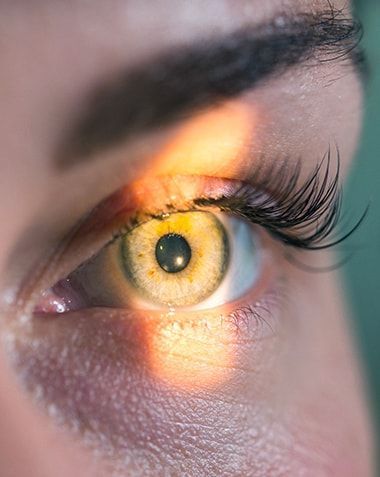Diabetic Retinopathy
Home
Diabetic Retinopathy
Diabetic Retinopathy Treatment in Bengaluru – Laser, Surgery & Specialist Care
Living with diabetes requires constant care, and one of the most serious complications it can cause is diabetic retinopathy — a progressive eye disease that damages the retina, often leading to vision problems or even blindness if untreated. With Bengaluru being a hub for advanced eye care and diabetic management, patients here have access to expert ophthalmologists, modern laser therapies, and surgical solutions that can preserve and restore sight.
This comprehensive guide covers everything you need to know about diabetic retinopathy treatment in Bengaluru, including causes, symptoms, stages, available treatments, specialists, and lifestyle care tips.
What is Diabetic Retinopathy?
Diabetic retinopathy is an eye condition caused by damage to the tiny blood vessels in the retina due to long-term high blood sugar levels. It develops gradually and can affect both Type 1 and Type 2 diabetes patients.
If not detected early, it can progress silently to advanced stages and result in severe vision loss. The good news: with timely diagnosis and treatment, vision can often be saved.

Stages of Diabetic Retinopathy
Understanding the stages helps in deciding treatment.
Stage 1: Mild Non-Proliferative Retinopathy
- Small bulges in blood vessels (microaneurysms).
- Usually no vision problems yet.
Stage 2: Moderate Non-Proliferative Retinopathy
- Blood vessels swell and may leak fluid.
- Blurred vision begins.
Stage 3: Severe Non-Proliferative Retinopathy
- More blood vessels get blocked.
- Retina is deprived of oxygen.
Stage 4: Proliferative Retinopathy
- New abnormal blood vessels form (neovascularization).
- High risk of retinal detachment and blindness.
Specialists for Diabetic Retinopathy in Bengaluru
Patients should consult the following specialists for complete care:
- Ophthalmologist (Eye Specialist): Primary doctor for diagnosis and treatment.
- Retina Specialist: Expert in advanced procedures like laser therapy and surgery.
- Endocrinologist: Manages diabetes to control progression.
Dietitian: Provides diet plan for sugar and eye health.
Causes of Diabetic Retinopathy
The primary cause is prolonged uncontrolled blood sugar levels, but other factors accelerate the condition:
- High blood pressure (hypertension).
- High cholesterol levels.
- Smoking and alcohol consumption.
- Long duration of diabetes (10+ years).
- Kidney disease.
- Pregnancy in diabetic women.
Diabetic Retinopathy Treatment in Bengaluru
While there is no complete “cure,” treatment can slow progression and preserve vision.
1. Medications
- Anti-VEGF Injections (Lucentis, Eylea, Avastin): Reduce abnormal blood vessel growth and leakage.
- Steroid Injections: Control retinal swelling.
2. Laser Treatment (Photocoagulation)
- Seals leaking blood vessels.
- Prevents growth of new abnormal vessels.
- Outpatient procedure with minimal discomfort.
- Commonly used in moderate-to-severe stages.
3. Surgery
- Vitrectomy: Removes vitreous gel with blood leakage and scar tissue.
- Restores light reaching retina.
- Recommended in advanced proliferative retinopathy.
4. Blood Sugar & Lifestyle Management
Treatment is incomplete without controlling underlying diabetes:
- Regular monitoring of blood sugar, BP, and cholesterol.
- Following diabetic diet (low sugar, high fiber, omega-3 rich foods).
- Regular exercise like walking, yoga, or swimming.
- Avoid smoking and alcohol.
Diabetic Retinopathy Care in Bengaluru
Bengaluru offers world-class facilities for diabetic eye care. Patients can access:
- Specialized eye hospitals and retina care centers.
- Advanced diagnostic tools (OCT, fundus imaging).
- Expert retina surgeons and laser specialists.
- Affordable government eye care programs for diabetic patients.
- Integrated care models with endocrinologists and dietitians.
Lifestyle & Self-Care Tips for Patients
- Get a yearly eye check-up even if vision seems fine.
- Keep HbA1c levels under 7% to control diabetes.
- Maintain healthy weight and BMI.
- Include eye-friendly foods like leafy greens, carrots, walnuts, and fatty fish.
Practice stress management through yoga, meditation, and adequate sleep.
Symptoms of Diabetic Retinopathy
In early stages, there may be no symptoms. As the condition progresses, patients may experience:
- Blurred or fluctuating vision.
- Dark spots or floaters in vision.
- Poor night vision.
- Difficulty reading or recognizing faces.
- Sudden loss of vision in advanced cases.
Benefits of Timely Treatment
- Prevents blindness and severe complications.
- Reduces need for major surgery.
- Improves quality of life and independence.
- Supports overall diabetes management.
FAQ
- Chronic elevated blood glucose levels damage retinal capillaries and small vessels.
- Poor control of hypertension, high cholesterol, and blood sugar increases risk.
- The damage leads to leakage, formation of microaneurysms, hemorrhages, and abnormal new blood vessel growth (neovascularization).
- Oxidative stress and inflammation also play a role in progression.
Diabetic retinopathy is a complication of diabetes that affects the retina—the light-sensitive layer at the back of the eye. Over time, high blood sugar levels can damage small blood vessels in the retina, causing them to leak, swell, or close off, which may impair vision.
- Early stages often have no symptoms
- Gradual blurring of vision
- Floaters (small spots or strings that seem to float across field of vision)
- Dark or empty areas in vision
- Difficulty seeing colors clearly
- Sudden vision loss in advanced stages
- Non-proliferative (background) retinopathy: Early stage, microaneurysms, small hemorrhages, “dot-and-blot” bleeding.
- Pre-proliferative retinopathy: More severe changes, larger hemorrhages, venous beading, cotton-wool spots.
- Proliferative retinopathy: New blood vessels grow abnormally; fragile vessels can bleed, leading to vitreous hemorrhage or retinal detachment.
- Diabetic macular edema (DME): Fluid accumulates in the central retina (macula), causing swelling and vision distortion.
- Comprehensive eye exams including fundus photography, fluorescein angiography, optical coherence tomography (OCT)
- Regular screening is critical, especially for people with long-standing diabetes
- Monitoring changes over time helps in early detection and intervention
- Early-stage changes can often be stabilized or reversed with timely treatment
- Vision lost due to advanced damage may not be fully recovered, but further deterioration can often be prevented
- The goal is preservation of existing vision and prevention of complications like hemorrhage or detachment
